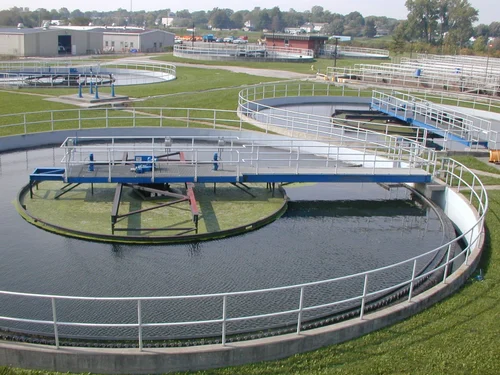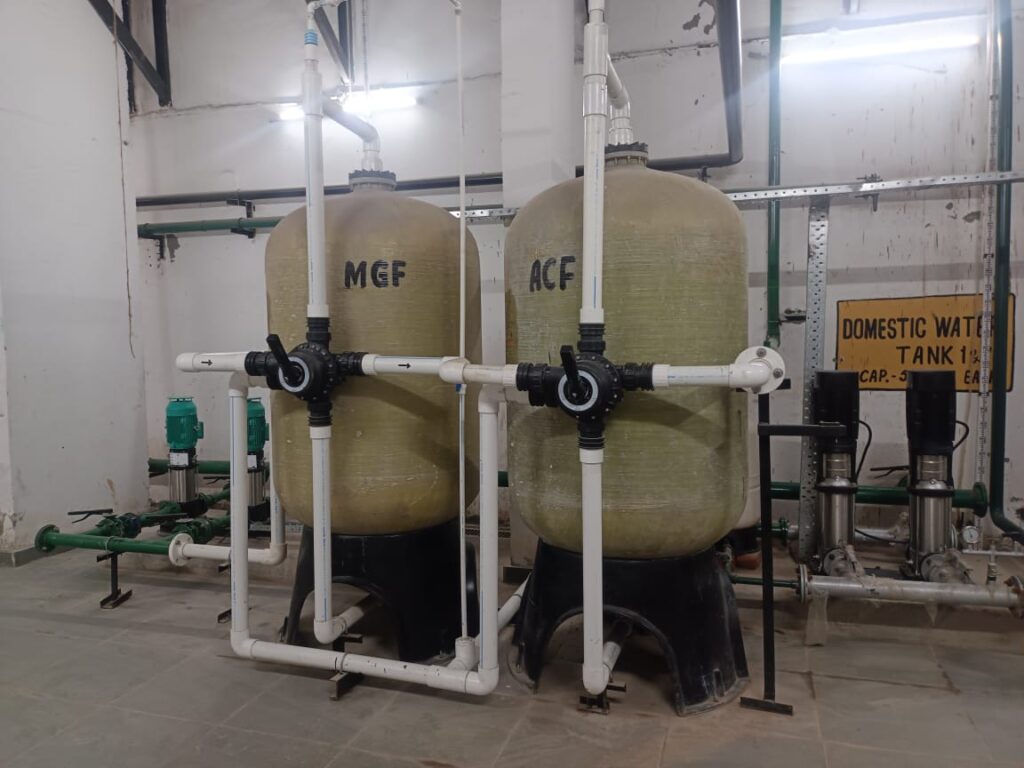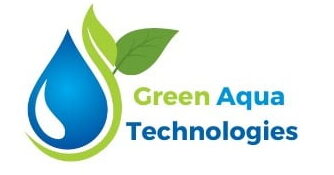Water Treatment Plant Manufacturer

WTP Plant Manufacturers
Green Aqua Technologies is a leading manufacturer and supplier of Water Treatment Plant in Ghaziabad, Uttar Pradesh, India.
WTP Palnt includes processes that improve the quality of water to make it appropriate for a specific end-use. The end use may be drinking, industrial water supply, irrigation, river flow maintenance, or water recreation uses, including being safely returned to the environment. Water treatment removes contaminants and undesirable components from the water and reduces their concentration so that the water becomes fit for its desired end-use.
Features:
- Automatic Operation
- Easy Operation and Maintenance
- High Quality Water
- Reusable Advanced treatments like Filtration, Softening, RO, UF
- Compact and Simple Design
Main Steps of Water Treatment Plant:
There Are Main 4 Steps Included In Water Treatment Viz Coagulation And Flocculation, Sedimentation, Filtration, Disinfection
- Coagulation And Flocculation
This Is The First Step Of Water Treatment That Allows The Addition Of Chemicals Which Helps To Neutralize The Negative Charge Of Dirt And Other Solid Dissolved Particles In The Water.
- Sedimentation
In Sedimentation, Floc (The Particles That Are Bound With Chemicals) Are Settled Down At The Bottom Of The Water Supply.

- Filtration
After Sedimentation, The Remaining Clear Water At The Top Will Transfer Through The Filters Which Involves Compositions Like Sands And Charcoal. This Process Helps To Eliminate and Dissolve Contaminants Such As Dust, Bacteria, and Chemicals From The Water.
- Disinfection
To Kill Remaining Hazardous Parasites, Viruses, and Bacteria, A Disinfectant Like Chloramine Chloramine Or Chlorine Will Be Added to the Filtered Water and Supply Protective, Clean Water To Houses, Industries, and Buildings Through Pipes.
Applications of Water Treament Plant:
- Industrial Water Supply
- Municipal Corporation
- Irrigation Field
- River Flow Maintenance
A Water Treatment Plant is a facility designed to purify raw water from natural sources like rivers, lakes, or groundwater to make it safe for drinking and other uses.
WTPs are crucial for ensuring a clean and safe water supply, preventing waterborne diseases, and meeting the water needs of communities.
WTPs employ processes like coagulation, sedimentation, filtration, and disinfection to remove impurities, contaminants, and pathogens from raw water.
WTPs remove various contaminants, including sediment, bacteria, viruses, organic matter, chemicals, heavy metals, and other pollutants that may be present in the source water.
Yes, water treated at a WTP undergoes rigorous purification processes to meet or exceed drinking water quality standards, making it safe for consumption.
